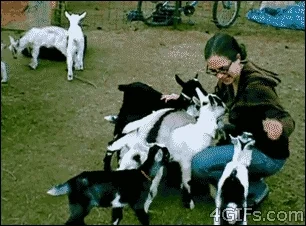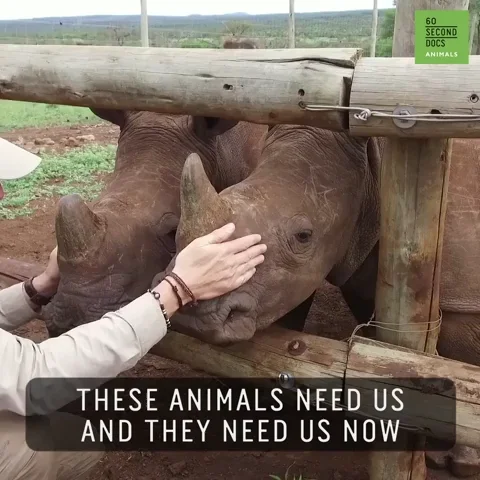
This logo isn't an ad or affiliate link. It's an organization that shares in our mission, and empowered the authors to share their insights in Byte form.
Rumie vets Bytes for compliance with our
Standards.
The organization is responsible for the completeness and reliability of the content.
Learn more
about how Rumie works with partners.
1. How can I help?
If you're an animal lover, you may feel overwhelmed about how to get started.

There are lots of different types of animals to choose from and different ways to volunteer.
You can volunteer by:
Taking care of rescued animals: Feed, pet, play with, train, and clean up after them.
Fostering animals: Take pets into your home temporarily so they get used to living in a home and being around people. Check out the Byte Should I foster a pet?
Raising money: Organize a fun run, sell t-shirts, or hold a raffle.
Working with therapy or support animals: Raise service dogs or assist with equine therapy.
 Cats & dogs
Cats & dogs
Most cities around the world have rescue organizations that take in stray and surrendered cats and dogs. Common organizations include the Humane Society, ASPCA, RSPCA, and Best Friends Animal Society. Get involved with service dogs at Canine Companions.

Other pets
While less common, there are also rescue organizations for other surrendered pets, such as guinea pigs, hamsters, rabbits, and reptiles. To find an organization, type the animal species, "rescue," and your location into your search engine.
 Farm animals
Farm animals
Some rescues focus on farm animals, such as cows, goats, horses, and chickens. To find an organization, type "farm animal," "rescue," and your location into your search engine.

Wildlife
Local and international wildlife rescue organizations offer opportunities to volunteer with injured and abandoned wild animals, such as sea creatures, birds, and small mammals.
To learn about volunteering with animals abroad, check out Volunteer HQ, Volunteer World, Animal Experience International, or GVI.
Did you know?
You can also help stray cats by getting involved with a Trap-Neuter-Return (TNR) program in your area. TNR means catching stray cats, getting them sterilized, and then returning them to where you found them. This helps reduce the number of strays without harming them.
2. What challenges will I face?
Ready to get started? Not so fast! Make sure you consider the following challenges before you choose your type of volunteering.
Physical Challenges
You don't need to be Superman, but if you want to be physically involved, you'll need to be able to do some exercise when volunteering with animals.

 Physical ability: You'll need to be able to walk dogs, bend over to pet a cat, lift a bag of animal food, or carry a chicken. If your mobility is limited or you don't want to be involved in physical tasks, you can also help with organization, administration, or fundraising.
Physical ability: You'll need to be able to walk dogs, bend over to pet a cat, lift a bag of animal food, or carry a chicken. If your mobility is limited or you don't want to be involved in physical tasks, you can also help with organization, administration, or fundraising.
 Sensitivity: Be prepared for some strong smells, like dirty animals or feces. Limit exposure to animals you're allergic to.
Sensitivity: Be prepared for some strong smells, like dirty animals or feces. Limit exposure to animals you're allergic to.
 Consistency: You can be most helpful if you can show up regularly, usually at least once a week.
Consistency: You can be most helpful if you can show up regularly, usually at least once a week.
Mental Challenges
Volunteering with animals isn't all snuggles and play. You'll also have to deal with some difficult situations.


Emotions: You'ill probably get attached to some animals. You can't bring them all home! It can be hard to say goodbye when animals are adopted or pass away.
 Illness/Injury: Not all animals are young and healthy. It can be upsetting to see animals that are sick or injured. The animals may also be angry or scared because they don't understand that you're trying to help.
Illness/Injury: Not all animals are young and healthy. It can be upsetting to see animals that are sick or injured. The animals may also be angry or scared because they don't understand that you're trying to help.

Unpleasant tasks: Some parts of animal care are kind of gross, like cleaning up poop and pee. Other tasks are boring, like doing laundry or organizing storage closets. However, these tasks are necessary and helpful for animal rescue organizations.
Quiz
You're going to volunteer at the local dog shelter. What should you do to prepare? Select all answers that apply:
The best volunteers are those who can help regularly and who are willing to help however they can. You can't bring all the animals home, and you don't need to be strong to help out.
Did you know?
Some animal rescue volunteers experience compassion fatigue. Compassion fatigue means feeling exhausted due to caring for others. Learn more in the Byte How do I overcome empathy fatigue?
3. What do I get out of it?
You may be wondering, "What's in it for me?"

...besides the obvious cuteness, of course.
You'll get to:
Learn how to care for animals 🐖
Maybe you're not sure if you want a pet, or don't have time or space to have your own. Volunteering is a good way to learn without committing to the full-time responsibility of pet ownership.
Gain health benefits 🫀
Hanging out with animals can lower blood pressure, improve mental health, boost your immune system, and provide physical exercise.
Meet people 🫱🏻🫲🏾
You may be working with animals, but you'll also build connections with members of your community and hopefully make a few friends!
Build up your resume ✅
Volunteering looks good on your resume. It shows you're reliable and responsible. You may even be able to get relevant career experience, like teaching new volunteers (if you want to be a teacher) or working on the organization's website (if you want to be a web designer).
For more information, check out the Byte How can I use volunteering to build my resume?
Example Volunteer
Help Amina choose a volunteer experience.

Amina loves all animals. Unfortunately, she's allergic to horses. She would like to have her own pet, but they're not allowed at her university dorm. She can volunteer for a few hours once a week.
Quiz
Which volunteer opportunities would be best for Amina? Select all that apply:
Amina can volunteer with cats, dogs, or wild animals. However, she can't foster animals because animals aren't allowed where she lives. She's allergic to horses, so she should avoid a farm rescue.
Take Action
You're ready to start volunteering!

This Byte has been authored by
Alyson O'Shea
International Credentials Evaluator
MA
